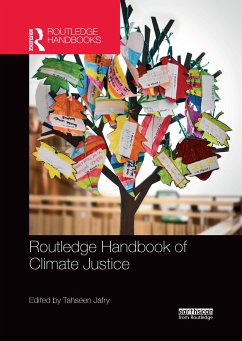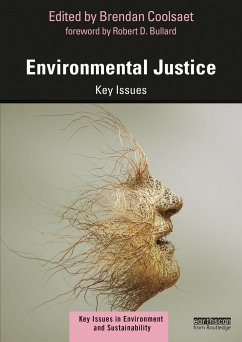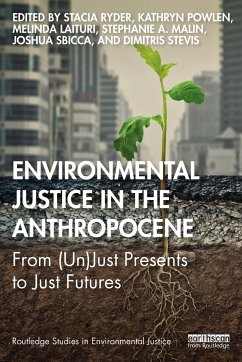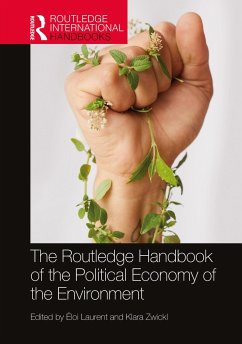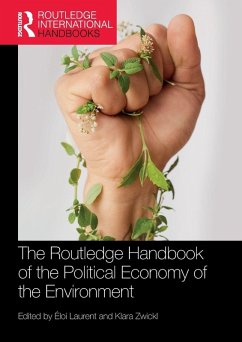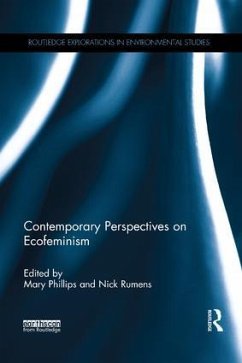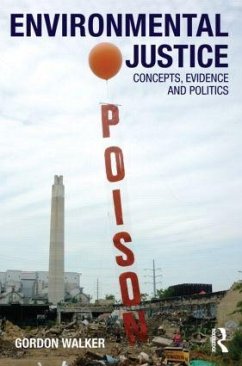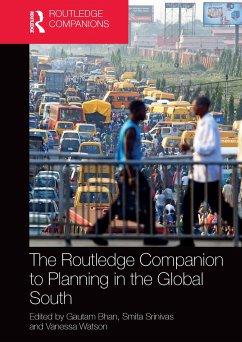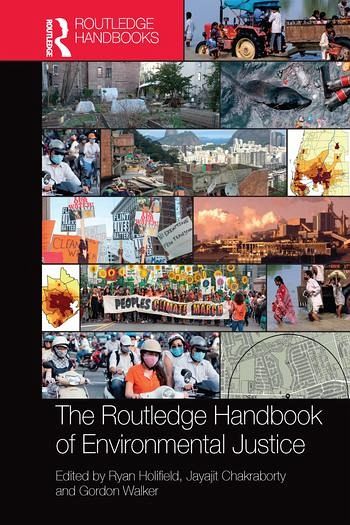
The Routledge Handbook of Environmental Justice
Versandkostenfrei!
Versandfertig in 6-10 Tagen
52,99 €
inkl. MwSt.
Weitere Ausgaben:

PAYBACK Punkte
26 °P sammeln!
The Routledge Handbook of Environmental Justice presents an extensive and cutting-edge introduction to the diverse, rapidly growing body of research on pressing issues of environmental justice and injustice. With wide-ranging discussion of current debates, controversies, and questions in the history, theory, and methods of environmental justice research, contributed by over 90 leading social scientists, natural scientists, humanists, and scholars from professional disciplines from six continents, it is an essential resource both for newcomers to this research and for experienced scholars and p...
The Routledge Handbook of Environmental Justice presents an extensive and cutting-edge introduction to the diverse, rapidly growing body of research on pressing issues of environmental justice and injustice. With wide-ranging discussion of current debates, controversies, and questions in the history, theory, and methods of environmental justice research, contributed by over 90 leading social scientists, natural scientists, humanists, and scholars from professional disciplines from six continents, it is an essential resource both for newcomers to this research and for experienced scholars and practitioners.
The chapters of this volume examine the roots of environmental justice activism, lay out and assess key theories and approaches, and consider the many different substantive issues that have been the subject of activism, empirical research, and policy development throughout the world. The Handbook features critical reviews of quantitative, qualitative, and mixed methodological approaches and explicitly addresses interdisciplinarity, transdisciplinarity, and engaged research. Instead of adopting a narrow regional focus, it tackles substantive issues and presents perspectives from political and cultural systems across the world, as well as addressing activism for environmental justice at the global scale. Its chapters do not simply review the state of the art, but also propose new conceptual frameworks and directions for research, policy, and practice.
Providing detailed but accessible overviews of the complex, varied dimensions of environmental justice and injustice, the Handbook is an essential guide and reference not only for researchers engaged with environmental justice, but also for undergraduate and graduate teaching and for policymakers and activists.
The chapters of this volume examine the roots of environmental justice activism, lay out and assess key theories and approaches, and consider the many different substantive issues that have been the subject of activism, empirical research, and policy development throughout the world. The Handbook features critical reviews of quantitative, qualitative, and mixed methodological approaches and explicitly addresses interdisciplinarity, transdisciplinarity, and engaged research. Instead of adopting a narrow regional focus, it tackles substantive issues and presents perspectives from political and cultural systems across the world, as well as addressing activism for environmental justice at the global scale. Its chapters do not simply review the state of the art, but also propose new conceptual frameworks and directions for research, policy, and practice.
Providing detailed but accessible overviews of the complex, varied dimensions of environmental justice and injustice, the Handbook is an essential guide and reference not only for researchers engaged with environmental justice, but also for undergraduate and graduate teaching and for policymakers and activists.





